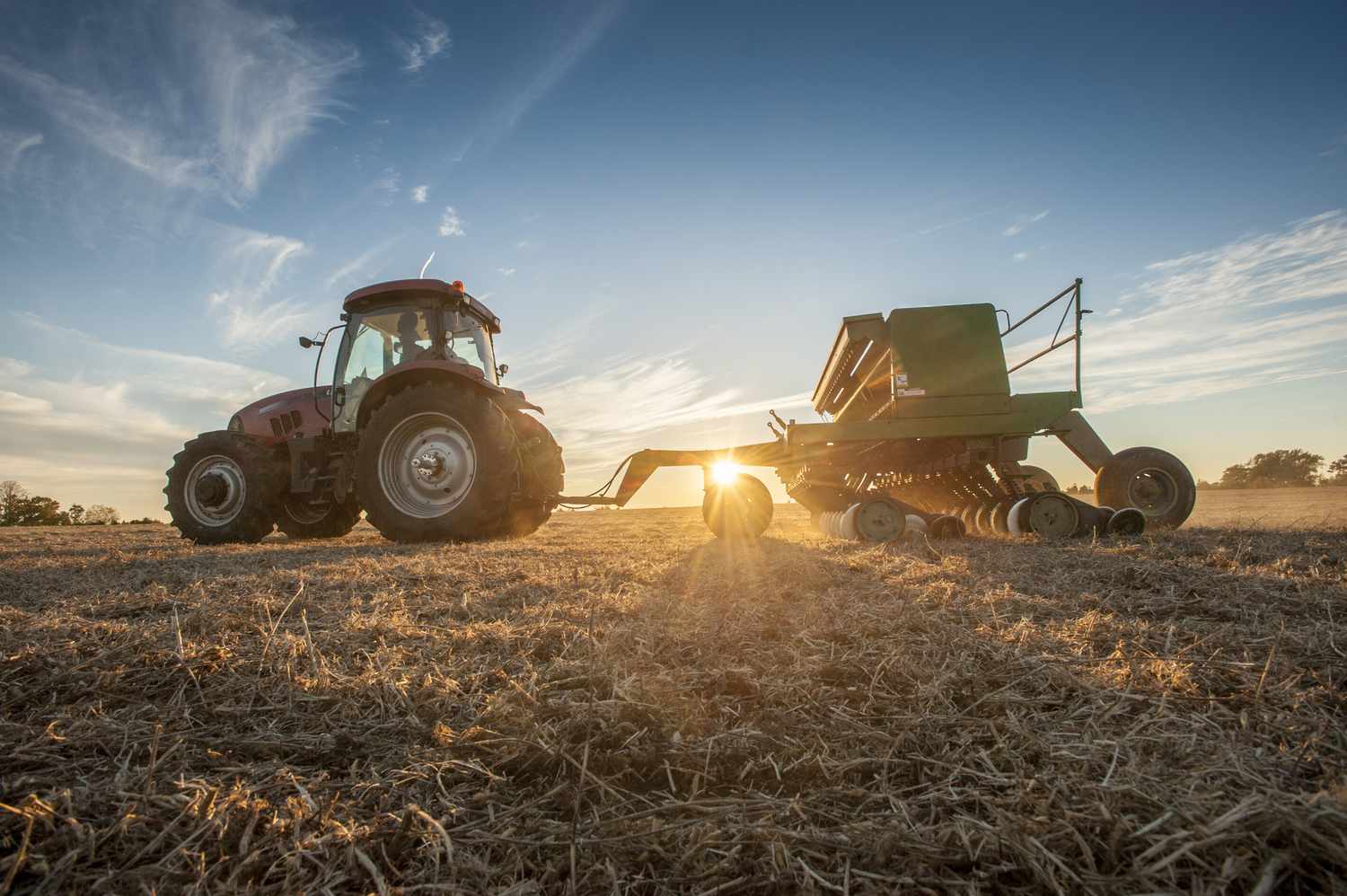
When it comes to the foundation of our economy and the production of essential resources, primary industries play a vital role. These industries, also known as primary sectors, are responsible for the extraction and harvesting of natural resources, such as agriculture, forestry, fishing, and mining.
While primary industries may seem simple at first glance, there are numerous fascinating facts that make them extraordinary. From the immense contribution to employment to their impact on global trade, primary industries shape the world we live in.
In this article, we will delve into 17 extraordinary facts about primary industries that will broaden your understanding of their significance. So, let’s dive in and explore the remarkable aspects of these essential sectors.
Key Takeaways:
- Primary industries, like farming and mining, are super important for the economy. They create jobs, help with food and resource production, and even support rural communities.
- These industries also need to be careful with the environment and follow rules to make sure they’re doing things the right way. They’re a big part of making sure we have what we need for building and making things.
Primary Industries are the Backbone of Economies
Primary industries, also known as extractive industries, play a vital role in the global economy. These industries are responsible for extracting and producing raw materials such as agriculture, mining, forestry, and fishing.
Agriculture is the Largest Primary Industry
Agriculture takes the top spot among primary industries. It encompasses farming, livestock production, and crop cultivation. The sector feeds the world’s population and provides raw materials for various industries.
Mining Fuels Economic Growth
Mining is a key primary industry that extracts valuable minerals and resources from the Earth. It provides essential raw materials for manufacturing, construction, and energy production.
Primary Industries Contribute to Job Creation
Primary industries generate employment opportunities on a large scale. From farmworkers and miners to loggers and fishers, these industries are a major source of livelihood for millions of people worldwide.
Renewable Resources are Crucial
Sustainable primary industries focus on renewable resources. This involves responsible and environmentally-friendly practices to ensure long-term viability and minimize negative impacts on ecosystems.
Primary Industries Drive Innovation
The primary sector constantly evolves through research and development. From advanced farming techniques to technological advancements in mining and forestry, innovation drives efficiency and productivity.
Primary Industry Exports Boost Trade
Primary industries contribute significantly to international trade by exporting raw materials and agricultural products. These exports generate revenue and strengthen economic relationships between countries.
Fishing Supports Global Food Security
The fishing industry plays a crucial role in providing a sustainable food source for the global population. It supplies protein-rich seafood and supports coastal communities’ economies.
Forestry Enables Sustainable Wood Production
Forestry primary industries engage in responsible forest management, ensuring a continuous supply of sustainable wood for construction, paper, furniture, and other industries.
Primary Industries Contribute to Biodiversity Conservation
Many primary industries actively participate in biodiversity conservation. Through initiatives like reforestation and regenerative agriculture, these industries aim to protect and restore delicate ecosystems.
Primary Industries Face Climate Change Challenges
Climate change impacts primary industries through extreme weather events, changing growing seasons, and shifting ecosystems. Adaptation strategies and sustainable practices are vital to address these challenges.
Primary Industries Embrace Digitalization
The advent of digital technologies has transformed primary industries. From precision agriculture using drones to data-driven mining operations, digitalization improves productivity and sustainability.
Primary Industries Support Rural Communities
Primary industries often form the economic backbone of rural communities. They provide employment opportunities and contribute to the overall development and well-being of these regions.
Primary Industries Promote Food Diversity
Agriculture primary industries cultivate a wide variety of crops, promoting food diversity and reducing vulnerability to crop failures or diseases that may affect specific crops.
Primary Industries Impact Water Resources
Primary industries have a significant impact on water resources through irrigation, mining operations, and fishing activities. Sustainable water management practices are crucial to mitigate these impacts.
Primary Industries are Subject to Regulations
Due to their potential environmental impacts, primary industries are subject to strict regulations and permits to ensure responsible resource extraction and sustainable practices.
Primary Industries are Essential for Industrial Development
Industrial development heavily relies on primary industries for sourcing raw materials and energy resources. Without these industries, manufacturing and construction sectors would struggle to meet demand.
Conclusion
The primary industries are the backbone of economies worldwide, providing essential raw materials, driving innovation, and supporting livelihoods. From agriculture and mining to forestry and fishing, these industries play a crucial role in sustaining global economies and fostering sustainable development.
Conclusion
The primary industries play a crucial role in the global economy, providing essential resources and employment opportunities. From agriculture to mining, these industries are responsible for supplying the raw materials needed for various manufacturing and processing activities. The 17 extraordinary facts about primary industries highlighted in this article shed light on their significance and impact on our lives.
Whether it’s the staggering amount of food produced by the agricultural sector or the valuable minerals extracted by the mining industry, primary industries are the backbone of modern society. By understanding and appreciating these facts, we can develop a greater appreciation for the individuals and sectors that contribute to our daily lives.
As we continue to advance technologically and strive for sustainable practices, primary industries will remain integral to our economic and social development. Through responsible management, innovation, and collaboration, we can ensure the continued growth and success of these crucial sectors for generations to come.
FAQs
1. What are primary industries?
Primary industries refer to sectors that involve the extraction or cultivation of raw materials, such as agriculture, mining, forestry, and fishing.
2. Why are primary industries important?
Primary industries provide essential resources for various industrial processes and are crucial for global economic growth. They also create employment opportunities and contribute to the overall development of society.
3. How does agriculture contribute to primary industries?
Agriculture is a primary industry that involves the cultivation of crops, raising livestock, and producing food. It is essential for ensuring food security and supporting rural economies.
4. What role does mining play in primary industries?
Mining is a primary industry that involves the extraction of minerals and ores. It provides raw materials for various industries, including manufacturing, construction, and energy production.
5. Are primary industries sustainable?
Sustainability is a growing concern in primary industries. Efforts are being made to adopt sustainable practices that minimize environmental impact and optimize resource use.
6. How are primary industries affected by technology?
Technology plays a significant role in improving efficiency and productivity in primary industries. Automation, data analytics, and precision farming techniques are just a few examples of technological advancements in these sectors.
7. Can primary industries coexist with the conservation of natural resources?
With proper management and sustainable practices, primary industries can coexist with the conservation of natural resources. Balancing economic development with environmental preservation is crucial for long-term sustainability.
Was this page helpful?
Our commitment to delivering trustworthy and engaging content is at the heart of what we do. Each fact on our site is contributed by real users like you, bringing a wealth of diverse insights and information. To ensure the highest standards of accuracy and reliability, our dedicated editors meticulously review each submission. This process guarantees that the facts we share are not only fascinating but also credible. Trust in our commitment to quality and authenticity as you explore and learn with us.


